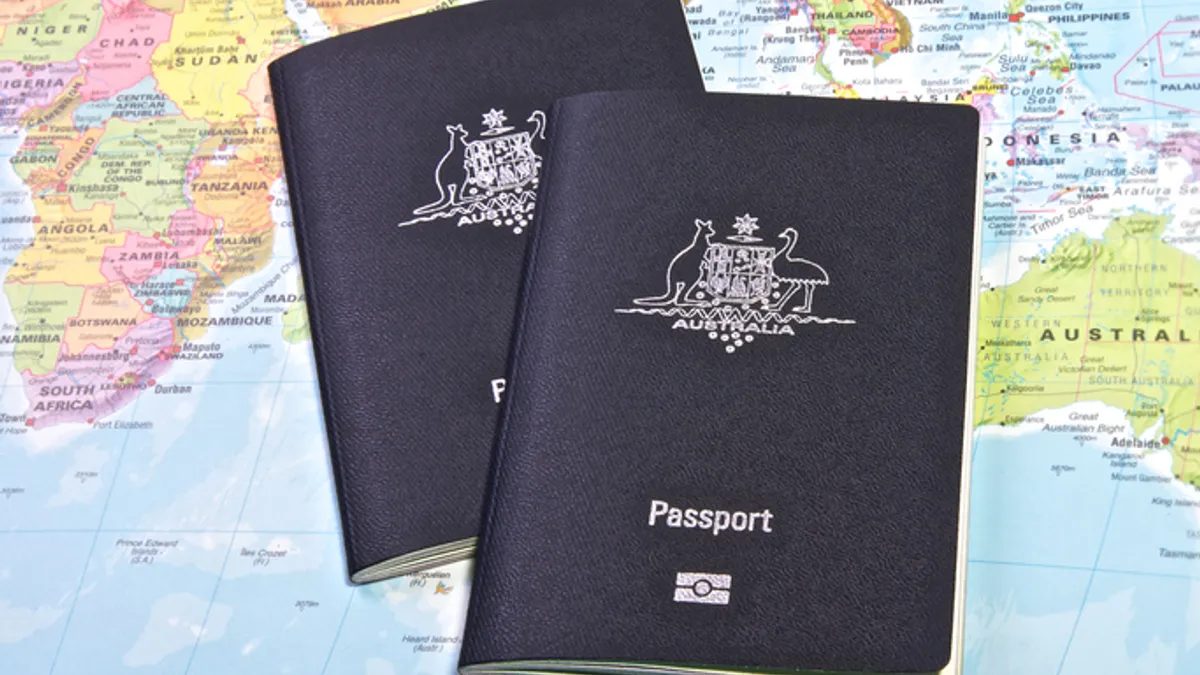At Canva, employees have skills passports they can use to chart their journey through the company, Head of People Experience Charlotte Anderson told HR Dive.
“It’s not necessarily a physical thing,” Anderson said.
Instead, the skills passport is a conceptual term the company uses to help workers understand that the more skills they have and the more skills they develop and build, “the more that they will enable you to go on and have amazing experiences and growth experiences” at Canva, she said.
Canva, headquartered in Australia, has always taken a skills-first approach but removed four-year degree requirements from job postings a few years ago, Anderson said. When hiring and promoting, the company focuses on the value and impact of a worker’s skills versus job titles or years of experience, she said.
“When we think about the employee life cycle, that really begins from the moment that you engage with Canva. Our skills-based approach means that when you apply for your role, we’re not looking for where you went to school or what your previous company was. We’re really looking at transferable skills,” Anderson said.
Anderson worked in marketing before moving into a human resources role at Canva three years ago, she said, and showcased and highlighted the people skills she had developed in previous roles to drive her career progression at Canva.
“I’m probably a nice example of it, where we have seen people come from different industries,” Anderson said. “There’s a real respect for experiences that you’ve had, either outside of work or the new experiences that maybe you’ve had whilst you’ve been at work.”
Traveling through the company
Emily Stewart, now a platform product manager at Canva, started working at Canva in January 2019 as an email marketer. By the end of the next year, she had moved into a product manager role.
“Everyone was always really supportive. At Canva, it’s always just about, ‘Can you do the job,’ rather than, ‘Do you have the experience?’” Stewart said.
She had already been taking on technical tasks in her email marketing role and was learning on the job.
“I just realized I was really loving and enjoying the engineering side of things a lot more.” Stewart said.
After she expressed interest in a product manager position, Canva had her complete the product manager challenge that external candidates are given, through which she was able to show her skills competency. And, with the help of Canva’s internal coaching program and upskilling opportunities, Stewart was able to move into the new role and dispel any fear she had of her ability to take on the new responsibilities.
“It’s kind of crazy for me to think that it’s been less than four years since I officially became a PM. I guess maybe on an industry level, I may seem pretty inexperienced, but I’m working on really huge initiatives,” Stewart said. “The managers and coaches I’ve had have just always made it safe for me to fail. I have taken bigger risks, and they’ve paid off… It really helps you take those bigger risks, knowing that you’re going to be supported.”
Canva uses what it calls its Pathways program, an internal mobility program, to help workers find other opportunities within the company. Since it launched in 2022, there have been 250 internal moves, Anderson said.
“We have a dedicated team for internal Pathways, and they’re working across the business to drive as much skill mobility as possible,” Anderson said. “For me, seeing career changes has been a really nice piece to skills-based hiring.”
Embarking on a skills-based path
For companies new to skills-based hiring, Anderson recommended starting small.
“Start with your job ads,” she said. “Think about how you can make those more skills-based.”
Then, begin to thread a skills-based approach through all of the company’s processes — from hiring to growth and development to internal mobility, Anderson said. Part of that involves creating a culture where it’s okay to call out bias, she said.
“Having a really solid, inclusive recruitment strategy has helped with the skills-based hiring approach, because you’re able to call out if a hiring manager says they can only have a Harvard law degree,” Anderson said. “You’re able to say, I can see that you’re going down a more qualifications-based path here.”
The skills-first approach has helped drive diversity, equity and inclusion efforts, Anderson said. “It’s about widening the net and ensuring that as many people as possible can get access to a role at Canva,” she said.
The company, she said, received 300,000 applications for its open jobs this year and employs 5,000 people at offices around the world.
“It takes time. It's not necessarily going to be the easiest change, but it’s so worth it, and it pays off in dividends,” Anderson said.





















